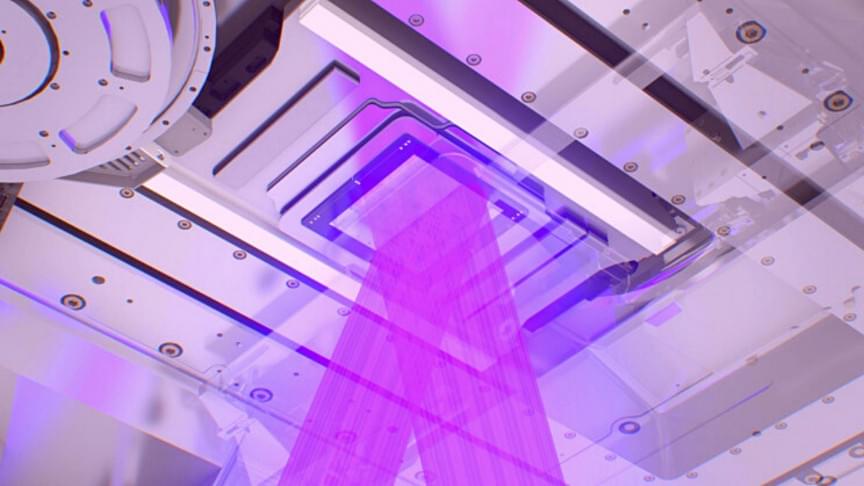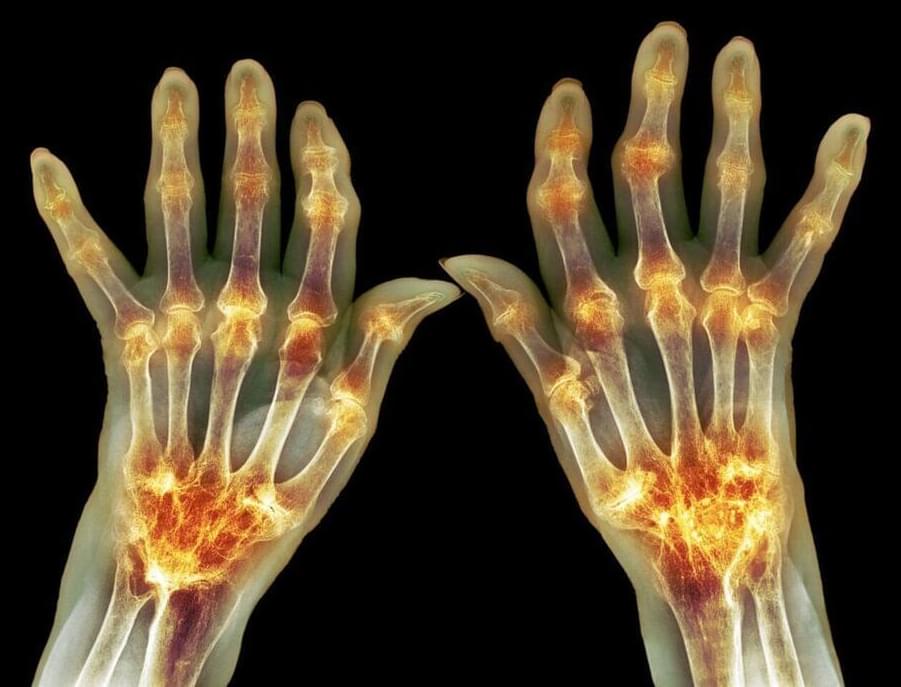ASML’s latest EUV lithography machine may be able to kill two birds with one stone! Reviving Moore’s law, the second solving the chip shortage.



The rapid commercialization of space and the establishment of the U.S. Space Force have created ideal conditions for change in the national security space business, says Steve Isakowitz, CEO of the Aerospace Corp. and former president of Virgin Galactic.
Aerospace, based in El Segundo, California, is a federally funded research and development center focused on analysis and assessment of space programs for the Defense Department, NASA and the National Reconnaissance Office.
In an interview with SpaceNews, Isakowitz says unprecedented opportunities are emerging for national security space organizations to capture commercial innovation. Defense programs won’t transform overnight, he says, but change is definitely in the air.



For the newly reported study, Guilak’s team combined these two strategies to generate a new treatment approach for rheumatoid arthritis.
Researchers at Washington University School of Medicine in St. Louis have used CRISPR-Cas9 genome editing to engineer induced pluripotent stem cells (iPSCs) that can be implanted subcutaneously to deliver an anticytokine biologic drug in response to inflammation caused by rheumatoid arthritis. When implanted into a mouse model of rheumatoid arthritis the engineered cells automatically sensed and responded to inflammatory cytokines, and produce therapeutic levels of the drug, which reduced inflammation and also prevented bone erosion.
“Doctors often treat patients who have rheumatoid arthritis with injections or infusions of anti-inflammatory biologic drugs, but those drugs can cause significant side effects when delivered long enough and at high enough doses to have beneficial effects,” said senior investigator Farshid Guilak, PhD, the Mildred B. Simon Professor of Orthopedic Surgery. “We used CRISPR technology to reprogram the genes in stem cells. Then we created a small cartilage implant by seeding the cells on woven scaffolds, and we placed them under the skin of mice. The approach allows those cells to remain in the body for a long time and secrete a drug whenever there is a flare of inflammation.”
Guilak and colleagues report on their studies in Science Advances, in a paper titled, “A genome-engineered bioartificial implant for autoregulated anticytokine drug delivery.”
Juno Solar is one of five projects that SB Energy is building this year, with an additional 1.3 GW scheduled to go online over the next seven months.
From pv magazine USA
Project construction was performed by Signal Energy. SB Energy, along with SOLV, will provide ongoing operations and maintenance services and asset management. First Solar supplied its Series 6 modules and Nextracker supplied its NX Horizon smart solar tracker.

The cashierless technology shift continues apace with today’s news that Zippin has raised $30 million in a series B round of funding. The San Francisco-based company is one of several players in the space to gain traction for a technology that seeks to not only make supermarket queues obsolete, but also generate big data insights for retailers.
Founded in 2,018 Zippin leverages AI, cameras, and smart shelf sensors to enable shoppers to place items in their cart and walk out without waiting. The company opened its first checkout-free store in San Francisco back in 2018, and it has since entered into partnerships with the likes of Aramark, Sberbank, and the Sacramento Kings’ Golden 1 Center to power cashierless stores globally.
Zippin had previously raised around $15 million, and with another $30 million from SAP, Maven Ventures, Evolv Ventures, and OurCrowd, the company is well-financed to capitalize on the retail industry’s continued push toward automation-powered efficiency. The company said its ultimate goal is to retrofit stores with the required technology inside a day, with minimal downtime for retailers.

General Motors will idle nearly all its assembly plants in North America starting Monday as the COVID-19 pandemic affects production of semiconductor chips overseas.
GM said its Arlington Assembly in Texas, where it makes its highly profitable full-size SUVs, will run regular production next week, along with Flint Assembly, where it makes its heavy-duty pickups, Bowling Green Assembly in Kentucky, where it makes its Corvette, and a portion of Lansing Grand River Assembly, where it will make some Chevrolet Camaro and Cadillac Blackwing cars.
But all other assembly plants in North America will idle starting Monday.
Video on Neom, the future city.
Earn money for charity just by browsing the internet when you sign up for Tab For A Cause here: https://tab.gladly.io/joescott.
NEOM is Saudi Arabia’s tentpole project in their Vision2030initiative to help move the Kingdom away from an oil-based economy and rely more on technology and tourism. It has some ambitious goals, like being 100% sustainable, moving all transport underground, and even glowing beaches. But the most noticeable thing about the project is the fact that the city will lie on a 100-mile line serviced by a hyperloop-style high speed train system.
But is it all it’s cracked up to be? Let’s take a look.
Here’s the link to NEOM’s official site: https://www.neom.com/en-us.
Want to support the channel? Here’s how:

Researchers have made a tiny camera, held together with ‘molecular glue’ that allows them to observe chemical reactions in real time.
The device, made by a team from the University of Cambridge, combines tiny semiconductor nanocrystals called quantum dots and gold nanoparticles using molecular glue called cucurbituril (CB). When added to water with the molecule to be studied, the components self-assemble in seconds into a stable, powerful tool that allows the real-time monitoring of chemical reactions.
The camera harvests light within the semiconductors, inducing electron transfer processes like those that occur in photosynthesis, which can be monitored using incorporated gold nanoparticle sensors and spectroscopic techniques. They were able to use the camera to observe chemical species which had been previously theorized but not directly observed.